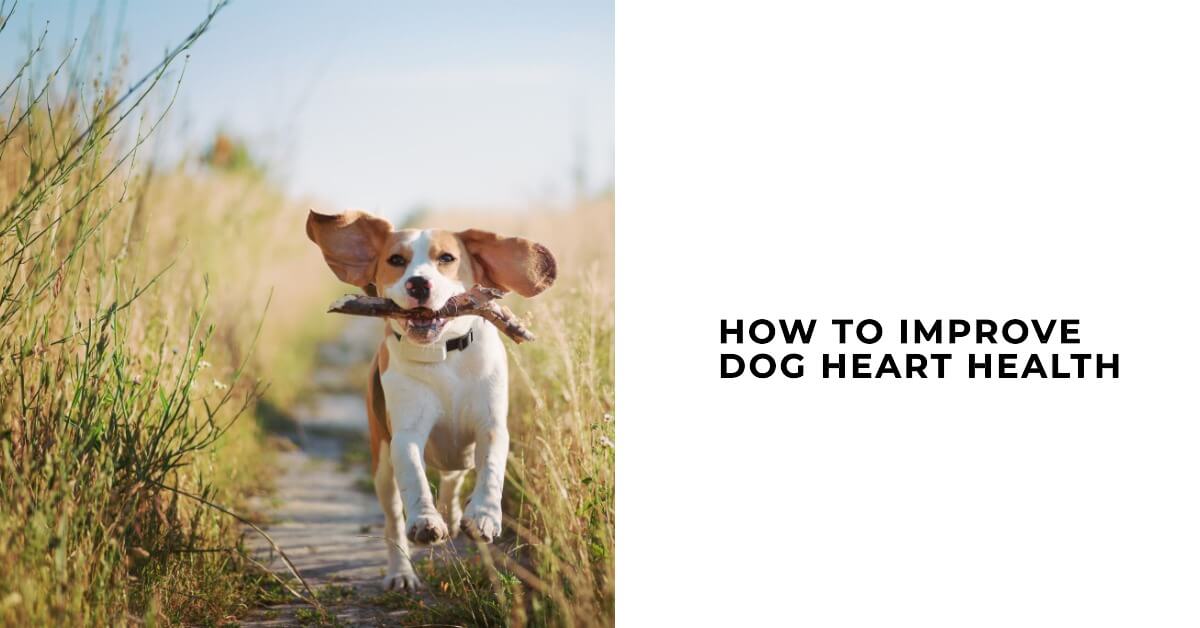When it comes to our furry companions, their health is always a top priority. One crucial aspect of their well-being is their heart health.
Just like humans, dogs can experience heart-related issues, and as responsible pet owners, it’s important to take proactive steps to improve and maintain their heart health.
In this comprehensive guide, we will explore effective strategies and lifestyle changes that can significantly contribute to enhancing your dog’s cardiovascular well-being.
Table of Contents
Toggle1. Prioritize Regular Veterinary Check-ups
Regular visits to the veterinarian are vital in monitoring and maintaining your dog’s heart health. Schedule routine check-ups, especially as your canine companion ages. These visits allow the veterinarian to assess your dog’s heart function, identify any early signs of cardiac problems, and provide appropriate recommendations or treatments if necessary.
2. A Nutritious Diet for a Healthy Heart
A balanced diet plays a pivotal role in maintaining your dog’s overall health, including their heart. Here are some dietary considerations to keep in mind:
- High-quality Dog Food: Opt for premium dog food that contains essential nutrients, vitamins, and minerals. Look for options that are specifically formulated to promote heart health.
- Omega-3 Fatty Acids: Incorporate omega-3 fatty acids into your dog’s diet through fish oil supplements or foods rich in these beneficial fats. Omega-3s have anti-inflammatory properties and support cardiovascular health.
- Limited Sodium Intake: Excessive sodium consumption can strain the heart. Choose low-sodium dog food options and avoid feeding your dog salty human foods.
3. Exercise: A Heart-Healthy Routine
Regular exercise is not only great for your dog’s overall fitness but also essential for their heart health. Consider the following exercise recommendations:
- Daily Walks: Take your dog on daily walks to keep them active. Walking is a low-impact exercise that promotes circulation, strengthens the heart, and helps maintain a healthy weight.
- Playtime and Interactive Toys: Engage in playtime activities that get your dog moving, such as fetch or tug-of-war. Interactive toys can provide mental stimulation while keeping your dog physically active.
4. Weight Management Matters
Maintaining a healthy weight is crucial for your dog’s cardiovascular well-being. Obesity puts extra strain on the heart and increases the risk of heart disease. Here’s how you can manage your dog’s weight effectively:
- Portion Control: Follow the recommended feeding guidelines provided by your veterinarian and avoid overfeeding. Adjust portion sizes based on your dog’s age, breed, and activity level.
- Healthy Treats: Choose low-calorie treats or opt for healthier alternatives like carrots or apple slices. Avoid excessive treats that can contribute to weight gain.
5. Keep Stress Levels in Check
Stress can negatively impact your dog’s heart health, just as it does in humans. Create a calm and safe environment for your furry friend. Here are a few tips:
- Routine and Structure: Establish a consistent daily routine to provide a sense of security for your dog. Stick to regular feeding times, exercise schedules, and sleep patterns.
- Quiet Retreats: Create quiet spaces where your dog can retreat and relax. Provide a comfortable bed or a cozy corner where they can feel safe and at ease.
6. Regular Dental Care
Believe it or not, proper dental care is closely linked to heart health in dogs. Poor oral hygiene can lead to gum disease, which has been associated with an increased risk of heart problems. Follow these dental care practices:
- Brushing: Brush your dog’s teeth regularly using a dog-friendly toothbrush and toothpaste. Aim for daily brushing to prevent plaque buildup.
- Professional Cleanings: Schedule regular dental cleanings with your veterinarian to remove tartar and address any potential dental issues.
7. Regular Heartworm Prevention
Heartworm disease can have devastating effects on a dog’s heart and overall health. Protect your furry friend by:
- Administering Preventive Medication: Consult with your veterinarian to determine the most appropriate heartworm preventive medication for your dog’s needs. Administer it regularly as directed.
- Avoiding Mosquitoes: Minimize your dog’s exposure to mosquitoes, which are carriers of heartworm larvae. Limit outdoor activities during peak mosquito times, use mosquito repellents, and ensure proper screening of windows and doors.
Conclusion
Caring for your dog’s heart health is a responsibility that should never be overlooked. By incorporating regular veterinary check-ups, a nutritious diet, exercise, weight management, stress reduction techniques, dental care, and heartworm prevention into your dog’s routine, you can significantly improve their cardiovascular well-being. Remember, a healthy heart means a happy and active furry friend by your side for years to come.































